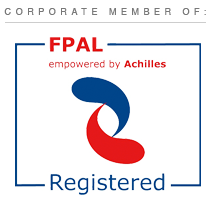If It Sounds Too Good To Be True
Employment Fraudsters
Canterbury: Do you work through an agency, have you recently applied for a new job, or do you have information about a recruiter where you or a colleague has experienced fraudulent or unfair activity?
Recruitment scams happen all the time. Employment fraud happens when a fraudster claims to be a recruitment agent, hiring you for a job – which can be in a foreign country – that doesn’t exist.

Such scams are usually well organized: unknown parties lure an unsuspecting applicant into a sophisticated trap such as when a person or organization posing as a well-known and trusted company or agency attempts to obtain cash or personal and financial data from potential candidates, most often via the internet.
The con-men know that there is a sea of available job-seekers who covet well-paid job positions in renowned companies. Further, many candidates are willing to go great lengths to obtain these jobs. Fraudsters play on these hopes and dreams by conspiring to suck funds from their prey for obviously necessary expenditures like tickets, accommodation, visas and legal costs.
They may try to steal your identity as well. Apart from the funds transferred to the impostor’s bank account, unsuspecting buyers need to beware of the risks connected of identity theft. One requirement put forward may require sending personal data (ID or passport scans or other documentation confirming identity) or financial data (bank account or credit card numbers). Identity theft may result in legal and financial problems later on, when the fraudster uses the acquired data, say, to shop on the internet or perpetrate other illegal activities using the victim’s name.
Don’t feel too all alone. International companies also fall victim to such scams. When this happens to big firms, they can suffer a significant PR loss amongst potential candidates. So it’s a two-way street.
News of such scams easily spread on the web via forums and social networking sites. Some firms now take the precaution of warning candidates about potential scams after having fallen victim or to prevent such situations in the future. Warnings take the form of outlining procedures and the legitimate costs involved in the recruitment process.
There are precautions. Check any documents for poor spelling and grammar as this is often a sign that fraudsters are at work. Ask the embassy representing the country where you expect you will be working how to obtain a visa and its cost. Check that the answers the potential employer gives you are the same. If they’re not, it may be a sign of fraud. Check official records to confirm that the organisation offering you the job really exists. If it does, contact the organisation directly through officially listed contact details to confirm the job offer is genuine. Tell the employer that you will make your own travel and accommodation arrangements. Be on your guard, if they try hard to dissuade you or tell you that you have to use the agency they refer you to. That is highly irregular.
Below is a focused checklist of dos and don’ts to help prevent you falling victim to recruitment scammers.
What to do
- Proceed with caution. You know your job, how to do it and how much one should be paid for doing it. If you see a job offer, which is too good to be true it probably is too good to be true
- Be cautious as to any email job offers and those you have not applied for yourself.
- Research the company you are in touch with. Check their website and procedures. Compare the phone numbers of the person you are contacting with the company webpage. Compare the e-mail address (especially the domain name). If there are differences from the website, then check the domain and who it belongs to via www.who.is.
- Remember to check for redirected domains!
- Do research on the person, who contacted you. Check profiles on various networking sites: LinkedIn, Facebook, Google Plus. Instead of calling back on their mobile, try calling the main office to ask for connection with the party in question.
- Be cautious with free e-mail accounts. Respected companies usually use their own domains when contacting candidates and liasons.
- If you fall victim to or discover a scam, report it to the appropriate authorities immediately. For further help see the recruitment industry count fraud forum website, which provides specific advice on for candidates and recruitment professionals www.safer-jobs.com
- Contact the real company to let them know about a recruitment scam.
- Once you have transferred money, it is highly unlikely you’ll recover it. If you sent you personal or financial data to the impostor, remember to report it to the appropriate services and to change your documents to prevent further use of the acquired data.

What Not To Do
- You must not transfer any money with your application. If the company claims to have costs, check them thoroughly before making any payments. Consult any public services, which may hold information for such costs. That is travel agencies, embassies, lawyers and the like.
- You must not send your personal data and document scans. An employer requires such data to employ you and to fulfill its own legal requirements. But do not send such information before doing your own research of the employer and checking to see if the data is indeed required for employment. If possible, provide personal data face-to-face with the employer, instead of sending it.
- Discontinue all communication with an impostor once you have discovered a scam.
Remember, that fraudsters use scams to trick you into thinking you are dealing with a genuine company or partner. This ruse will come as an unhappy wake-up call to unsuspecting candidates. Documents are usually well-prepared and look professional. Procedure may seem coherent. Costs might be what you may be expecting from a foreign job offer and introduction. But keep in mind, that this is only smoke and mirrors designed to make you feel comfortable. Hence caution is always advised.
What to do once you fall for a scam? Don’t panic. Stay calm and report. Provide the history of your correspondence to the proper authorities. Tell the police exactly what happened and describe each detail. Remember to replace your documents via the necessary routes and warn your bank of any risks to your account or credit card.
And remember once again that if an offer seems too good to be true, it most probably is.





